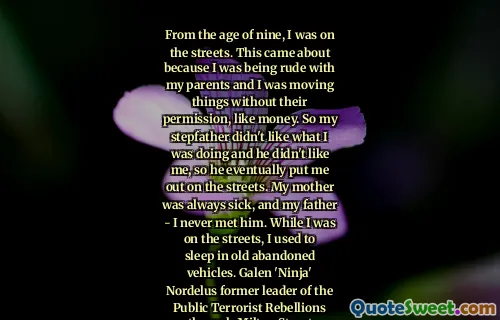This unhoused, exiled Satan was perhaps the heavenly patron of all exiles, all unhoused people, all those who were torn from their place and left floating, half-this, half-that, denied the rooted person's comforting, defining sense of having solid ground beneath their feet.
In "Joseph Anton: A Memoir," Salman Rushdie reflects on the experiences of those who are displaced or lack a permanent home. He introduces the idea of an exiled, metaphorical Satan, suggesting that this figure represents the feelings of all individuals who have been uprooted from their familiar surroundings. This perspective emphasizes the struggles of those who exist in a state of limbo, without the stability and sense of belonging that comes from having a defined place to call home.
Rushdie's portrayal of this unhoused figure serves as a poignant commentary on the plight of exiles and the broader human experience of dislocation. It evokes empathy for those who navigate life without the comforting foundation of a solid ground beneath their feet. By aligning the experience of the outcast with that of the exiled, Rushdie invites readers to consider the emotional and psychological toll of displacement and the inherent dignity and humanity of those who endure such hardships.
